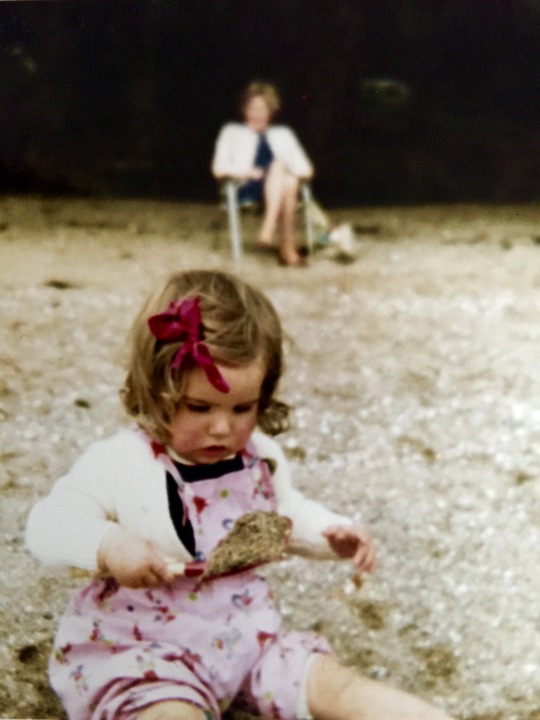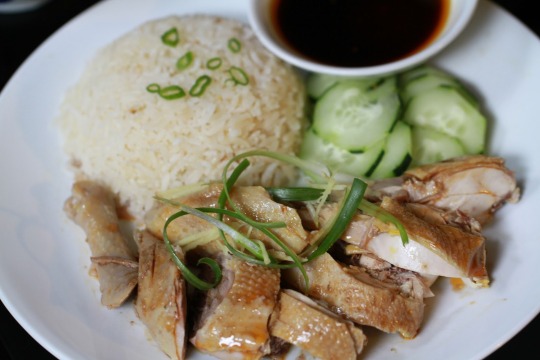Voting With My Feet
December 2015
Tales of Transition
By Laura J. Stephens
 “All of us, from the cradle
to the grave, are happiest when life is organised as a series of excursions,
long or short, from the secure base provided by our attachment figures”.
“All of us, from the cradle
to the grave, are happiest when life is organised as a series of excursions,
long or short, from the secure base provided by our attachment figures”.
- Jeremy Holmes, John Bowlby and Attachment Theory, p. 67
“Oh my God, you look a right size.” My mother greets me with a look of disdain as she approaches with an imperious air, striding at a lick across the ward. Her words ricochet in my head with the shame of the implication, or perhaps of having such a mother. My neck and face begin to burn red.
Marooned on the hospital bed, I suddenly feel huge. Crossing my legs self consciously, I swallow down the hurt and anger and with well-practiced ease avoid my mother’s face. My gaze falls instead on the cradle alongside my hospital bed. My first born, a lovely baby girl, sleeps on oblivious to the drama playing out around her.
I resolved then that I would offer my little girl a very different mother/daughter relationship.
Last month, as I went on holiday, my mother told me she’d miss me for the first time in my life. I am 52. Given a choice, I’d have preferred to hear that sooner.
* * *
Expat life has been likened to a rollercoaster ride; my family’s introduction to that life-style began as the millennium dawned. At the time I yearned for adventure and cultural exposure.
I’m not a thrill seeker at heart, yet it somehow felt the right time for me, despite having weathered a difficult move as a child from North to Southern England. Those young, anxious memories were buried but would surface as I arrived in each posting. So much so that when I landed in our second posting, I experienced an episode of depression. This in turn led to me writing a memoir of those experiences; An Inconvenient Posting. My mother’s acknowledgement of my publishing success: “I didn’t know you knew any long words”. Thanks Mum!
* * *
Our first assignment was to Singapore, and later we would live in Houston, with a return to the UK sandwiched in between. Although spanning a decade, our experiences seem almost insignificant when compared to those of what might be termed ‘serial expats’. Their logistics are impressive; my mind whirls queasily at the thought of so many international moves. I am in awe of their relentless energy; thriving on the lifestyle, facing down mounds of brown boxes for decades.
In considering my own motivations, I have thought a lot about what makes us leave our country of origin, or the place we consider our home. There is a plethora of information on the nature and failure of expat assignments. The reasons vary widely according to circumstances, but all are significant to the individuals and employers involved. Many cite a spouse’s unhappiness as the chief cause for the breakdown of the assignment.
Aware of my own problematic attachment to my mother, I conducted anecdotal research for a dissertation into why people choose to live away from their country of origin. What I found out, perhaps unsurprisingly, was there are as many reasons why as there are people going. However, one motivation for leaving ? not often consciously acknowledged ? came up again and again: a desire to create space between a domineering parent and themselves.
In a healthy parental relationship, a ‘secure attachment’ exists, in which both parent and child experience pleasure from their relationship. It is therefore a logical and healthy response to experience some discomfort, pain even, when they are separated. As I worked on my dissertation I began to ask the question: had I voted with my feet?
* * *
If I was hoping my mother would miss me while I was away, I was to be disappointed. “Don’t think I’ll be making any special trips to come and see you”; this remark was made shortly after my parents had completed cricket tours of South Africa and Australia. They never did make the trip.
At the time of our first posting in 2000, if you’d asked me why? I would have said that my husband had been offered a tantalising job opportunity, and I was taking a formal career break from my job in Human Resources. I would get to travel, spend more time with my young children and support my husband in developing his career: all very plausible reasons.
Although all of the above was true, I would later realise I was not acting from a state of complete awareness. Put simply, the option to live in Singapore was a first opportunity to create space between myself and a mother I couldn’t get it right for. No more rigidity over phone calls or an expectation to cross the country every six weeks to see her, only to experience backhanded criticisms, sometimes direct attacks – am I the only one whose hair style is a constant source of disappointment to their mother? “I just don’t think your hair suits you that length”, whatever the length!
Looking back, I see that I was in a state of hypervigilance; having children meant I was less in control of my environment when in my mother’s presence. There was now more at stake – Grandma walloping my toddler with the TV remote control was definitely not okay!
Unfortunately, though, the provocation of guilt and shame is still entirely possible from a great distance. Did I think that by leaving for Singapore I would gain the upper hand? I think I did, it was payback time, a simple act of rebellion.
In the event, I certainly did give myself a break from the challenges of being at close proximity to my domineering parent. It was a relief not to be criticised ? and yet, driving around in the equatorial heat, admiring the bougainvillea trailing from the bridges, I couldn’t help thinking of my mother and how she would have loved to see the cerise and purple garlands dangling in swags. I craved space but also wanted her to share the experience of our new, vibrant home.

It began to dawn on me the solution to our relationship was not in the distance between us. It would only improve with a dose of honest dialogue and an acceptance on my part, that my mother either could not, or would not, change.
In truth, being geographically separated for long periods of time put new strains into the mix. My mother hated to think we were all _so _far away, “across thousands of miles of ocean; what if something happened to me?”, she would lament to her friends, who would in turn tell me, and I felt bad.
In leaving, I sought to place myself beyond my mother’s gaze and criticism. To hold, for a while, the power of knowing that I could see her when I wanted to and filter what she saw and heard. I wanted to be happy and safe, don’t we all? Packing up my life in to a rust red sea container and departing overseas seemed a way of making it happen.
If only relationships could be so easily resolved. I remember instead the guilt I felt about making phone calls at an inconvenient time because of time zone differences. “I don’t like speaking to you at breakfast time”, my mother jibed with annoyance in her voice. And then there was the lack of trips home, “It’s so long since I’ve seen you; I can’t remember what you look like”. The longest we ever went without seeing each other was nine months, and thereafter we would travel home as a family every six months. We spent a lot of money and effort going back as often as possible, for all our sakes; I know many expats struggle with guilt provocation from family members back home.
* * *
During our second assignment to Houston, my mother would often complain that I hadn’t spoken to her for days, even though I had. I assumed she was ‘being funny’ or her usual, adversarial self. I would find out later that there was a different reason; when I returned to England and took her to the doctor, she would eventually be diagnosed with Alzheimer’s disease.
Nowadays, my parents live in the same hometown as my family, in Kent, on the outskirts of London. My mother’s short-term memory is almost non-existent and her long-term memory is poor, varying from day to day. As the doors to her memory swing open and closed, parts of her that were previously unseen are revealed in the process, like a drained lake exposing its bed.
As previously mentioned, when I went on holiday I was quite stunned at the comment, “I’ll really miss you”. As we drove away from my parents’ bungalow, my daughter said with a wry smile, “What was up with Grandma, it’s not like her to be so nice to you!”. Later it struck me that if we were still living abroad, I might not have heard her express such a tender sentiment. In such moments I am glad to be at home, even though I sometimes miss the excitement of living abroad.
This year my mother’s cognitive ability has inevitably deteriorated a little bit more. Her responses have become more child-like and uninhibited. The absence of my mother’s normal self gives rise to conflicting feelings inside me and can be unnerving. Just when I think I’ve got used to her softer demeanour, some subtle neurological change shifts in her brain and a new presentation emerges.
My mother used to be a very powerful personality, sometimes frighteningly so ? tomato sauce bottles have been known to take flight. Nowadays, she directs her aggressive outbursts at other people, but strangely not at me. She still throws things occasionally; a carer had her mobile phone lobbed at her last week. She always baulked at any suspicion of not getting her own way and needed to be put first. I believe this is a legacy of her own emotionally impoverished childhood.
Returning to Singapore this summer, eleven years after we departed, has been wonderfully nostalgic. Ah, the fragrant Chicken Rice! Inevitably, memories of feelings I had when I first arrived in 2000 also flooded in. I recall the inevitable culture shock, the transition phase (always messy) and the fact that being separated from my mother provided a whole other complication to my removal abroad.

The part of me that wanted an end to the overbearing, “You should’s … ”, was very relieved. However, I underestimated another part of me that would be at odds with this desire. I was overly attached, invested in keeping my mother happy and used to pushing aside my own needs and personal autonomy. So on returning to Singapore, I have got in touch with other feelings: the sensation of gnawing guilt and perversely feeling cut adrift from my mother, even though I yearned for and was responsible for the separation!
Despite the complex nature of our relationship, I do sense my mother has loved me in her own way, and in turn I wanted to love her back and make her happy. Fortunately, my need to assert my own path in life and live where I want to was ultimately stronger than my need to please her at all costs. I would later realise that this was a futile and unattainable goal, and I was not responsible for her happiness anyway.
Ultimately, that first assignment to Singapore was an emotionally rich experience for all of us, despite the setbacks encountered. We benefitted from the cultural exposure in Southeast Asia and the broadening effects of living with Singapore’s diverse population. With live-in domestic help the norm, my husband and I were able to go out in the evening sometimes and have fun in a carefree way, something we could not have so easily done were we living at home.
I believe I did ‘vote with my feet’, taking my first tentative steps towards separating myself from an unhealthy parental relationship. Although I could have stayed at home to do that, it was the catalyst that gave me the confidence to make a start.
The expat experience meant a break from my work life, and with more time alone to dwell and focus on my children, a desire arose to understand psychotherapy and retrain as a therapist. In doing so, I was provided with a life-changing opportunity to explore the true nature of my attachments and learn about the choices we all have with regard to how we think, feel and respond to others.
That said, my relationship with my domineering parent is what it is and may always be a source of sadness. There is a sense of having missed out – of a lost opportunity to be close to my mum. Now blessed with three daughters of my own, I am thankful at least to have ample opportunity to love them without fear of rejection.
© 2015 by Laura J. Stephens. All rights reserved.
British psychotherapist Laura Stephens currently lives in Kent, England with her spouse and three girls. Her book An Inconvenient Posting - an expat wife’s memoir of lost identity

offers a candid and often humorous insight into the paradoxes of an expat posting, including the truth about her own depression and recovery. The memoir offers a Resources Section to help foster emotional resilience while on the move.
Visit her website and follow Laura’s blog: LauraJStephens.com
on Facebook: www.facebook.com/AnInconvenientPosting
on Twitter: @LauraJStephens


